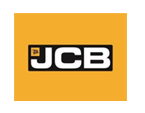B.Tech Electrical and Computer Engineering
Programme Overview
The B.Tech in Electrical and Computer Engineering at MIT-WPU is designed for those passionate about technology and eager to revolutionise industries with creativity and innovation. Aligned with the needs of Industry 4.0, this multidisciplinary programme combines academic learning with industry exposure and research, equipping you with skills to excel in a rapidly evolving economic landscape.
The curriculum prepares you for a sustainable career by focusing on cutting-edge technologies like Electric Vehicles, Smart Grids, Automation, AI & Machine Learning, IoT, Cloud Computing, Cybersecurity, and Data Science. It also enables you to address complex technological and business challenges, paving the way for impactful contributions to the future.
Major Tracks
- Smart Electric Mobility
- Artificial Intelligence
- Data Science
- Smart Grid and Energy Systems
- Robotics and Industrial Automation
Duration & Fees
Duration
4 Years
Applications Open for 2026
Fee Per Year
₹ 3,65,000
Scholarship
| Scholarship for AY 2026-27 | JEE Main Percentile | MH-CET Percentile |
|---|---|---|
|
Dr. Vishwanath Karad Scholarship (100%) |
94 & Above |
95 & Above |
|
MIT-WPU Scholarship I (50%) |
92 & Above |
93 & Above |
|
MIT-WPU Scholarship II (25%) |
91 & Above |
92 & Above |
Note: Best of JEE 2026 or MHT-CET 2026 Score will be considered for availing the scholarship.
Terms & Conditions Apply:
- All Scholarships are awarded on a First Come First Serve basis. All Scholarships are awarded as fee adjustments.
- To continue the scholarship for the entire duration of the programme, a minimum level of the academic score has to be maintained at an 8 CGPA across all semesters, attendance is to be maintained at a minimum of 80 percent, with no live backlogs in any subject/programme and no semester break, and there should be no disciplinary action against the student.
For more detailed information visit our website: https://mitwpu.edu.in/scholarships
Eligibility
A minimum of 50% aggregate marks in Class 10+2/ HSC, with English as a compulsory subject and A minimum of 50% aggregate marks in any one of the following subject groups:
- PCM (Physics, Chemistry, Mathematics),
- Physics & Mathematics with any Technical Vocational Subject
- PCB* (Physics, Chemistry, Biology*),
[*Biology/Biotechnology is applicable only for the Bioengineering Programme.] (Minimum 45% aggregate marks for candidates belonging to the Reserved Category from Maharashtra State).
OR
A minimum 60% aggregate marks in a Diploma in Engineering & Technology in a relevant branch from a government-approved technical board.
Selection Process
Admissions are based on the scores of JEE 2026/ MHT-CET 2026/ PERA-CET 2026, or MHT-CET-B* 2026/ NEET 2026* (*applicable only for the Bioengineering programme), along with a 500-word Statement of Purpose (SOP) written by the candidate
Programme Highlights
- State-of-the-Art Labs : Gain hands-on experience with advanced tools like DELL PowerEdge Servers and the AIoT SerBot Prime X Robot, powered by NVIDIA RTX A6000 GPUs, for AI/ML applications.
- Cutting-Edge Technologies : Explore emerging fields such as AI, IoMT, and robotics, focusing on microprocessors and robotics design for leadership in modern industrial advancements.
- Industry Collaboration : Work on internships and projects with global leaders like Bosch, Accenture, and Volkswagen to gain real-world experience.
- Ethical and Social Learning : Develop ethical decision-making skills and understand social impacts, shaping you into a responsible AI professional.
- International Exposure : Participate in study tours and research projects with international organisations, broadening your global perspective.
Programme Structure
| Semester | Course Type | Course Name/Course Title | Total Credits |
|---|---|---|---|
|
I |
UC |
Indian Constitution |
1 |
|
I |
UC |
Environment and Sustainability |
1 |
|
I |
UC |
Yoga - I |
1 |
|
I |
UC |
Social Leadership Development Program |
1 |
|
I |
UC |
Financial Literacy |
1 |
|
I |
PF |
Linear Algebra and Differential Calculus |
3 |
|
I |
PF |
Engineering Physics |
3 |
|
I |
PF |
Basics of Electrical Engineering |
4 |
|
I |
PF |
Engineering Mechanics |
3 |
|
I |
PF |
Programming and Problem Solving |
3 |
|
I |
Program Capstone Project/Seminar and Internships |
Python Programming |
1 |
|
|
Total Credits: |
22 |
| Semester | Course Type | Course Name/Course Title | Total Credits |
|---|---|---|---|
|
II |
UC |
Yoga - II |
1 |
|
II |
UC |
Co-creation |
1 |
|
II |
UC |
AI for everyone |
2 |
|
II |
UC |
Foundation of Peace |
2 |
|
II |
UC |
Indian Knowledge System (General) |
2 |
|
II |
UC |
Sports |
1 |
|
II |
PF |
Integral Calculus |
3 |
|
II |
PF |
Basics of Electronics Engineering |
3 |
|
II |
PF |
Digital Electronics |
4 |
|
II |
PF |
Engineering Chemistry |
3 |
|
|
Total Credits: |
22 |
| Semester | Course Type | Course Name/ Course Title | Total Credits |
|---|---|---|---|
|
III |
UC |
Spiritual and Cultural heritage: Indian Experience |
2 |
|
III |
UC |
Research Innovation Design Entrepreneurship (RIDE) |
1 |
|
III |
UE |
University Electives - I |
3 |
|
III |
PF |
Calculus and Numerical Methods |
3 |
|
III |
PF |
Data Structures and Algorithms |
3 |
|
III |
PM |
Electrical Machines |
3 |
|
III |
PM |
Power Systems and Protection |
4 |
|
III |
PF |
Renewable Energy Systems |
3 |
|
|
Total Credits: |
22 |
| Semester | Course Type | Course Name/ Course Title | Total Credits |
|---|---|---|---|
|
IV |
UC |
Rural Immersion |
1 |
|
IV |
University Core |
Life Transformation Skills |
1 |
|
IV |
University Electives |
University Electives - II |
3 |
|
IV |
Program Foundation |
Discrete Mathematics and Basic Statistics |
3 |
|
IV |
Program Major |
Advanced Electrical Machines |
4 |
|
IV |
Program Major |
Analog Circuits and Applications |
3 |
|
IV |
Program Major |
Computer Organizations and Operating Systems |
3 |
|
IV |
Program Major |
Control Systems |
3 |
|
IV |
Program Capstone Project/ Seminar and Internships |
Object Oriented Programming |
1 |
|
|
Total Credits: |
22 |
| Semester | Course Type | Course Name/Course Title | Total Credits |
|---|---|---|---|
|
V |
UC |
Managing Conflicts Peacefully: Tools and Techniques |
2 |
|
V |
UE |
University Electives - III |
3 |
|
V |
PE |
Program Elective - I |
4 |
|
V |
PM |
Communication Networks |
3 |
|
V |
PM |
Power Electronics |
4 |
|
V |
PM |
Database Management Systems |
2 |
|
V |
PM |
Microcontrollers and Applications |
3 |
|
V |
PM |
Data Science |
1 |
|
|
Total Credits: |
22 |
| Semester | Course Type | Course Name/Course Title | Total Credits |
|---|---|---|---|
|
VI |
UC |
National Academic Immersion Program |
2 |
|
VI |
PE |
Program Elective - II |
4 |
|
VI |
PM |
Robotics and Automation |
3 |
|
VI |
PM |
Electric Vehicle Technology |
4 |
|
VI |
PM |
Artificial Intelligence and Machine Learning |
4 |
|
VI |
PM |
Smart Grid Systems |
4 |
|
VI |
Program Capstone Project/Seminar and Internships |
Power Quality and Smart Metering |
1 |
|
|
Total Credits: |
22 |
| Semester | Course Type | Course Name/Course Title | Total Credits |
|---|---|---|---|
|
VII |
PE |
Program Elective - III |
4 |
|
VII |
Program Capstone Project/Seminar and Internships |
Capstone Project |
12 |
|
|
Total |
16 |
| Semester | Course Type | Course Name/Course Title | Total Credits |
|---|---|---|---|
|
VIII |
Program Electives |
Program Elective - IV |
4 |
|
VIII |
Program Capstone Project/Seminar and Internships |
Internship |
13 |
|
|
Total |
17 |
Career Prospects
Machine Learning Engineer
AI Research Scientist
Data Scientist
Natural Language Processing Engineer
Computer Vision Engineer
AI/ML Consultant
Deep Learning Engineer
Embedded Systems Engineer
Avionics Engineer
Research and Development Engineer
Programme Outcomes
- Use Artificial Intelligence, Machine Learning, embedded systems, and signal processing to address practical challenges in areas like telecommunications, healthcare, automotive, and data science.
- Apply engineering principles and AI/ML algorithms to design innovative solutions for electronic and communication systems.
- Develop systems and applications with a focus on AI to solve key problems in healthcare, transportation, and communication sectors.
- Conduct research in AI and deep learning, staying updated with advancements in technology and societal needs.
- Build AI systems rooted in ethical practices, considering social, environmental, and cultural factors for sustainable innovation.
Placements & Recruiters
100% Placement Assistance
Top Recruiters
FAQs
Yes, the programme includes mandatory internships, practical labs, and live industry projects to provide hands-on experience and prepare students for real-world challenges.
Graduates can work in industries such as AI, ML, data science, embedded systems, IoT, cybersecurity, and robotics.
MIT-WPU offers 100% placement assistance, internships, and collaborations with leading companies like Bosch, Accenture, and Volkswagen.
MIT-WPU excels in industrial partnerships, practical knowledge, and state-of-the-art lab facilities. The programme equips students with skills in electrical systems, computer engineering, and emerging technologies like AI and IoT, paving the way for exciting career prospects.
The curriculum includes programming, digital systems, networking, and electrical engineering basics like power systems, control systems, and circuits. Advanced topics such as AI, IoT, and machine learning are also covered.
This programme teaches best practices in both electrical and computer engineering, providing the tools to work across various key sectors. It offers career opportunities in technology, research, and innovation with the potential to excel in multiple fields.





















 admissions@mitwpu.edu.in
admissions@mitwpu.edu.in
